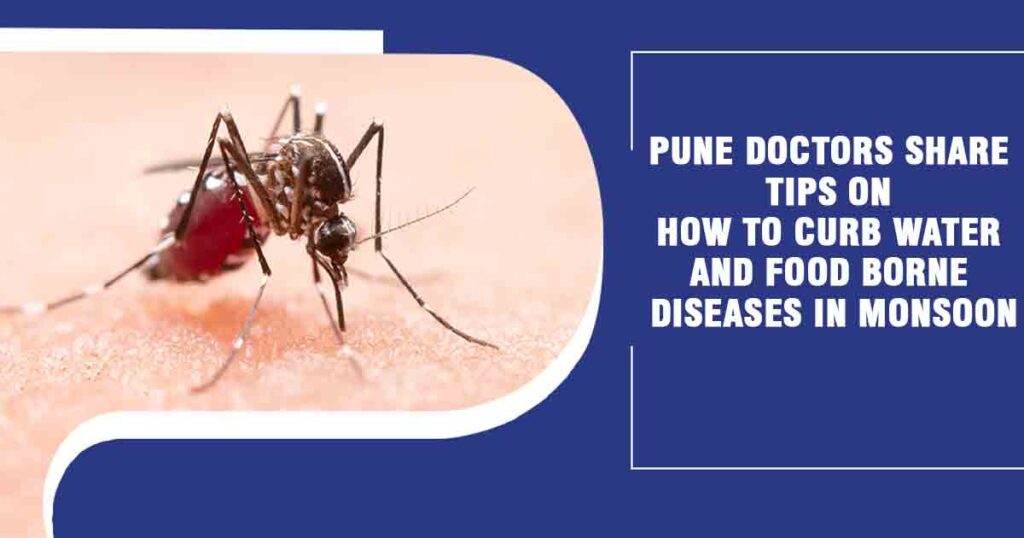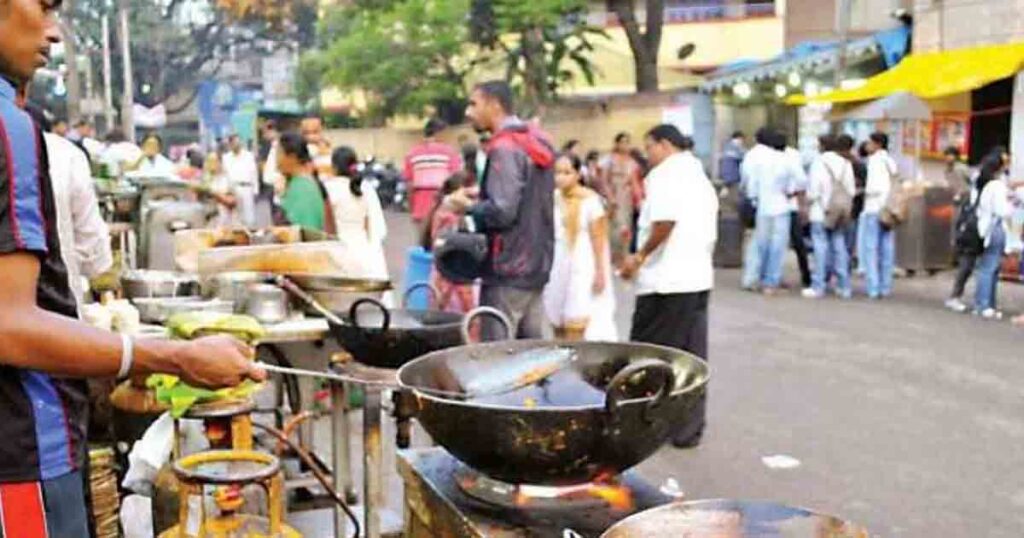Pune Doctors Share Tips On How To Curb Water and Food Borne Diseases in Monsoon

By: Pune Pulse
July 22, 2023
Pune: With the increase in food and water-borne diseases during monsoon, the doctors have encouraged citizens to follow various guidelines to stay safe from them.
As per data from the Pune Municipal Corporation (PMC), the total number of suspected dengue cases in Pune from January 2023 till now are 586 out of which 33 are positive. There has been a massive surge in suspected dengue cases from May 2023 till date as May had 27 suspected dengue cases. In June, the number increased to 54 and in July till now, 114 suspected dengue cases are there in Pune.
Just like Dengue, there are other food & water-borne diseases too like Typhoid, Malaria and Chikungunya etc.
Speaking to Pune Pulse, Dr Disha Seth, Consultant Physician, Ruby Hall Hospital, Wanowrie, says, “Food-borne illnesses can be caused by bacteria, viruses, parasites, or chemicals. Symptoms usually manifest within 72 hours. Common symptoms of food poisoning caused by the microbial agents Escherichia coli and Listeria species are nausea, vomiting, fever, abdominal cramps, Diarrhoea, weight loss, chills, sweating, and fatigue. More severe cases may produce bloody diarrhoea and cause paralysis or death. Contaminated water and poor sanitation are linked to the transmission of diseases such as Cholera, Diarrhoea, Dysentery, Hepatitis A, Typhoid and Polio. Absent, inadequate, or inappropriately managed water and sanitation services expose individuals to preventable health risks.”

Dr Disha Seth suggests some measures to prevent or reduce the risk of food and water-borne illnesses:
1. Ensuring to buy only fresh food
2. Proper storage and refrigeration
3. Hand washing before preparation
4. Cooking thoroughly
5. Avoid eating out
6. Install home water filters or boil water before drinking
7. Well water is not always monitored, so patients need to be encouraged to check with local health departments to see if the water in the well is free from diseases.
8. Consult a doctor when you have the following symptoms like fever, abdominal pain, vomiting, Diarrhoea, headache and yellowish discolouration of eyes or face.
Dr Kshitij Kothari, Gastroenterologist, at Sahyadri Hospital says, “The recent rise in foodborne diseases can be attributed to several factors, including climate change, consumption of unhygienic food such as contaminated mangoes and increased travel activities. It is important to highlight the potential risks associated with the consumption of mangoes and the use of artificial substances for ripening, which can contribute to diarrhoeal diseases.”
“As precautionary measures, it is crucial to prioritize food safety and personal hygiene. Washing vegetables and fruits obtained from outdoor vendors is essential, and maintaining personal hygiene practices is highly recommended. Opting for good quality and clean water and staying hydrated is vital. Water should also be boiled as a preventive measure. With the monsoon season in Pune, it is crucial to raise awareness about maintaining hygiene and taking precautions. Avoiding eating outside or opting for properly cooked food from well-hygienic establishments is advisable. If individuals experience persistent symptoms, it is important to seek medical attention promptly. Together, by raising awareness and following these preventive measures, we can mitigate the risk of foodborne diseases and ensure a healthier community,” added Kothari.









